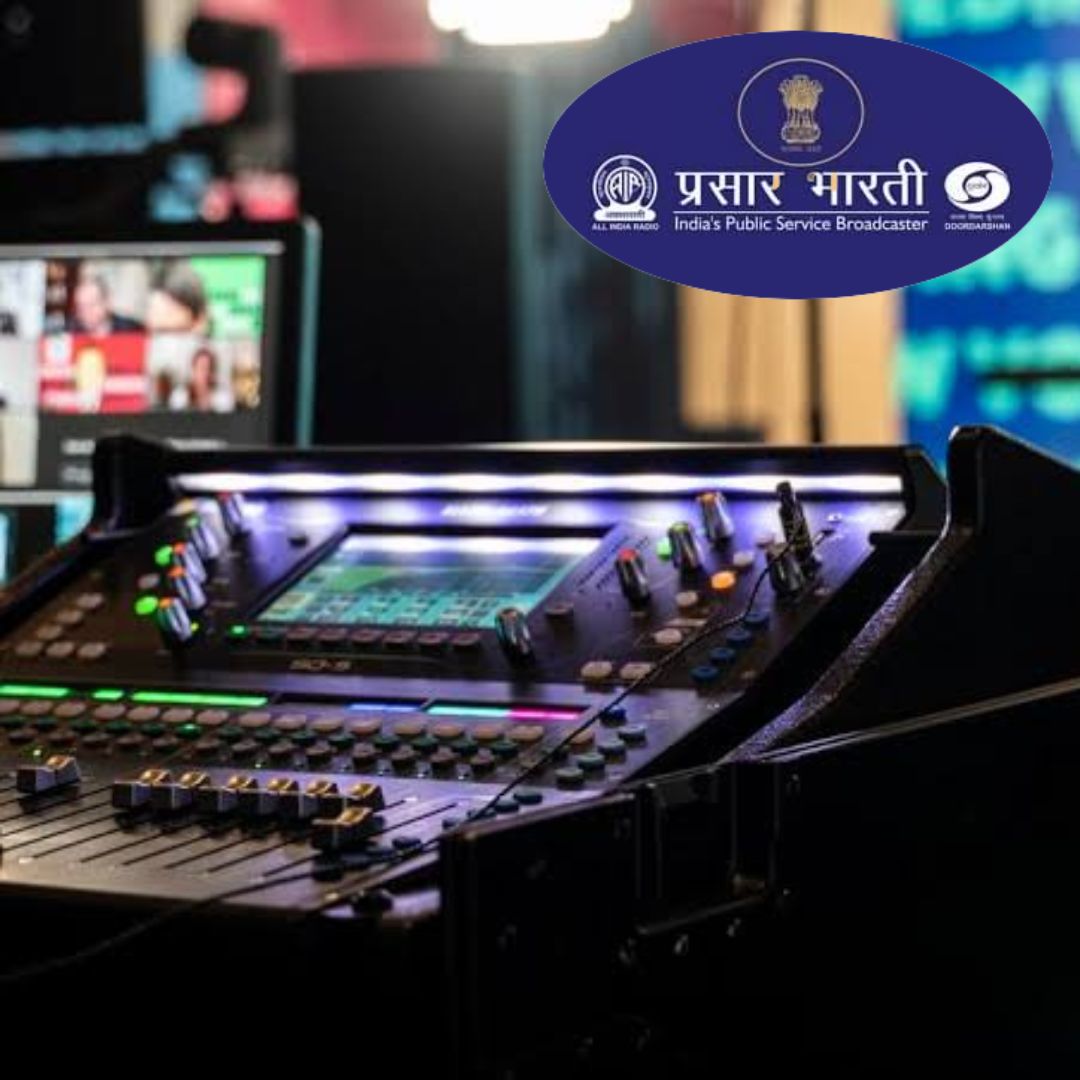
Image Credits: Prasar Bharti and Unsplash
State Govts Can No Longer Run Independent Broadcast Activities: I&B Ministry
Writer: Laxmi Mohan Kumar
She is an aspiring journalist in the process of learning and unlearning many things. Always up for discussions on everything from popular culture to politics.
India, 22 Oct 2022 7:10 AM GMT
Editor : Snehadri Sarkar |
While he is a massive sports fanatic, his interest also lies in mainstream news and nitpicking trending and less talked about everyday issues.
Creatives : Laxmi Mohan Kumar
She is an aspiring journalist in the process of learning and unlearning many things. Always up for discussions on everything from popular culture to politics.
Bringing a halt to government-run broadcast activities, the Information and Broadcasting Ministry would be bringing them under the regulation of public broadcaster Prasar Bharti. This is expected to limit the government narratives and bring forth unbiased content for public viewing.
The Information and Broadcasting Ministry on October 21 issued an advisory that bars any ministry or department under the governments of the center, state, and union territories and their associated entities should enter into 'broadcasting or distribution of broadcasting activities.'
The advisory was issued taking into consideration the recommendations by the telecom regulatory bodies in India, legal opinion from the Law Ministry, and the Supreme Court verdict in the Cricket Association of Bengal case.
Issuance of this notice would impact the broadcasting activities of several state-run mediums, such as Tamil Nadu's Kalvi TV and Arasu Cable and the Andhra Pradesh government's IPTV.
In regard to this, the ministry has observed that those who are already broadcasting content will continue their services through the public broadcaster Prasar Bharati. Meanwhile, entities distributing the content have been asked to "extract themselves" from the services within the deadline of December 31, 2023.
Streamlining Broadcast
The Information and Broadcasting Ministry is the nodal agency for all broadcast-related matters. Hence, the power of legislation in regard to "posts and telegraphs, telephones, wireless, broadcasting and other like forms of communication" and exclusive privilege to grant licenses to the same lies solely within the ministry's regulations.
In this context, the ministry took in suggestions and recommendations made earlier by the Telecom Regulatory Authority of India (TRAI), the Sarkaria Commission, and the Verghese Committee. The Cricket Association case verdict, which was related to broadcasting and telecasting rights in the context of Airwaves and frequencies, was also quoted for this purpose.
Responding to earlier demands by some states to own broadcasting stations, TRAI had noted that "the demand for either a concurrent or an exclusive power to the States regarding broadcasting could not be supported" and that they should not be allowed to enter the business of broadcasting and/or distribution of TV channels.
The Supreme Court observed that state control meant that the content consumed by the people would be monopolised by the political party who are elected for the time being. Public service broadcasting is expected to be impartial toward any political, economic, social matters, and public issues. This would not be possible if it is run by a party with a clear political and social standing.
Furthermore, the public broadcast should be in the hands of a corporation or multiple such corporations that are set up under a statute and should be able to provide unbiased content for public viewership. It is expected to promote ideas of pluralism and diversity of opinions and views.
All Under The Same Banner
A report by The Hindu stated that some of the existing operational broadcasts have already been brought under Prasar Bharati's ambit through memoranda of understanding (MoU). In light of the latest advisory, the remaining broadcast activities conducted by the Central/State/Union Territory governments would be incorporated within Prasar Bharati via "suitable" agreements. Until this is done, the channels and other services will continue uninterruptedly.
The TRAI has made it a point to convey that the importance of Prasar Bharati, as an independent statutory body, should not be lost sight of in the due process. With the incorporation of government-run broadcast, the framework of an unbiased public broadcast service remains under threat of being altered.
Addressing this concern, the advisory read that the body should fulfill the legitimate aspirations of broadcasting activities run by government entities while at the same time maintaining an 'arm's length' relationship between Prasar Bharati and the government. They highlighted the need to further strengthen Prasar Bharti's autonomy and functional independence to ensure the content does not get dictated by the government.
However, the existing policy guidelines would not limit the functioning of autonomous bodies such as government universities, colleges, schools, Krishi Vigyan Kendras, and so on from setting up broadcast services such as community radios and so on.
Also Read: Why Prasar Bharati Wants To Sever Ties With "Anti-National" News Agency PTI?
 All section
All section














